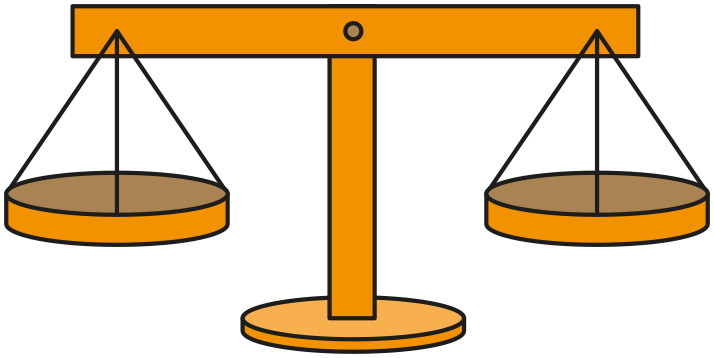T
tally
A way of recording a count by making marks. Tallies are usually grouped in fives.
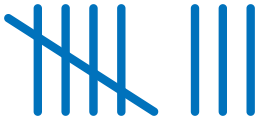
ten frame
A rectangle made up of two rows of five. Ten frames can help students count, add, subtract, and group numbers.

tens
1. The whole numbers that are two digits long (10–99).
2. The second place or column from the right is called the tens place. For
example, in the number 215, the 1 represents 1 ten.

thinking addition
A strategy that uses an addition fact you know to solve a subtraction problem. For example, 15 − 7 = 8 because 8 + 7 = 15.

thirds
Three parts of a whole that are the same size. (See also fair share and one-third.)
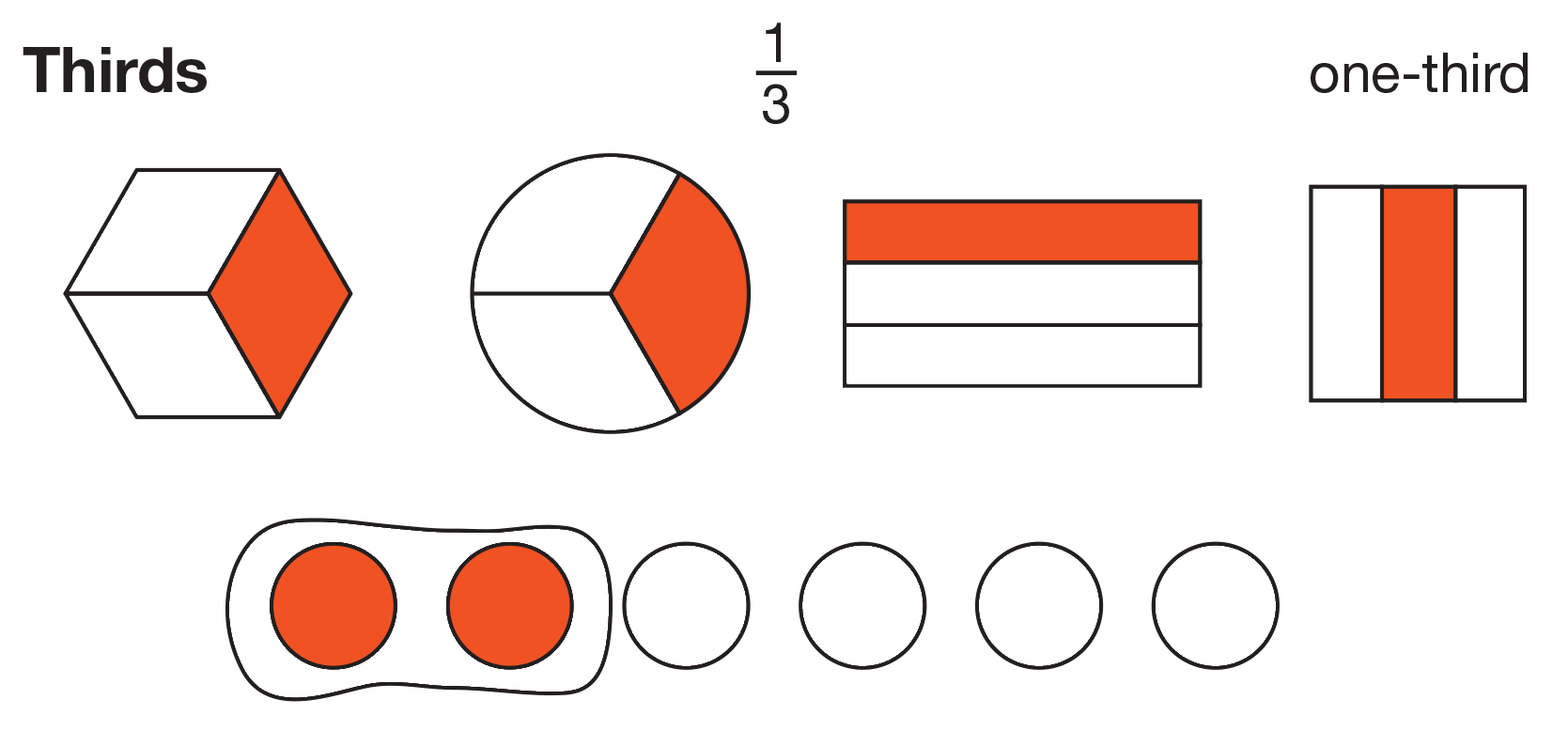
thousand
The number 1000 or ten 100s.
three-dimensional (3-D)
An object that has length, width, and height like objects in the real world.

three-fourths
Three-fourths is three pieces of a whole or group divided into four equal parts or
four "fair shares." (See also fair share, fourths, and
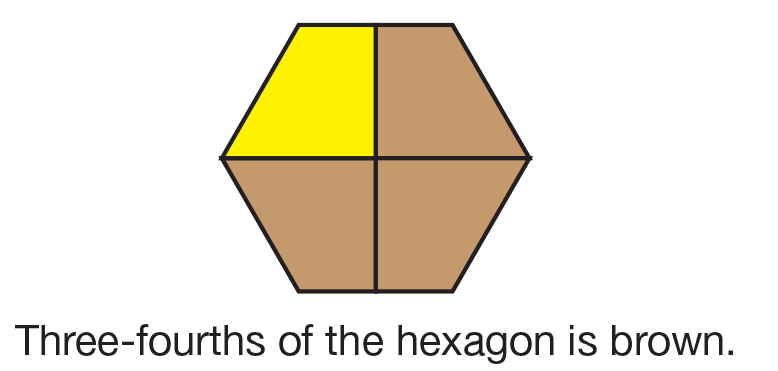
TIMS Laboratory Method
A method used to organize experiments and investigations. There are four steps: draw, collect, graph, and explore. It is a way to help students learn about the scientific method.
tool
An object or device used to develop math skills for counting, adding, subtracting, or representing numbers. For example, number lines, ten frames, beans, and connecting cubes are tools to help solve math problems.
total
The whole amount; the sum of two or more numbers.
trade
Regrouping or exchanging one item for another. For example, when using the Fewest Pieces Rule, if you have 12 bits, you trade 10 bits for one skinny. (See also Fewest Pieces Rule.)
trapezoid
1. A two-dimensional (2-D) shape with exactly one pair of parallel sides.
2. A two-dimensional (2-D) shape with at least one pair of parallel sides.

trial
One test or "try" in an experiment.
triangle
A two-dimensional (2-D) shape with three sides and three corners.

triple
Three times as much or as many.
true number sentence
A number sentence in which the numbers on both sides of the equal sign have the same value.
3 + 4 = 2 + 5 is a true number sentence.
3 + 4 = 8 is not a true number sentence.
turn-around fact
Addition or multiplication facts that have the same numbers but in a different
order, For example, 3 + 4 = 7 and 4 + 3 = 7, 3 x 4 = 12 and
turn-around rule.)
turn-around rule
Changing the order of the numbers in addition or multiplication does not change
the answer. For example, 3 + 4 = 7 and 4 + 3 = 7,
turn-around fact.)
two-dimensional (2-D)
A shape having length and width but no thickness.
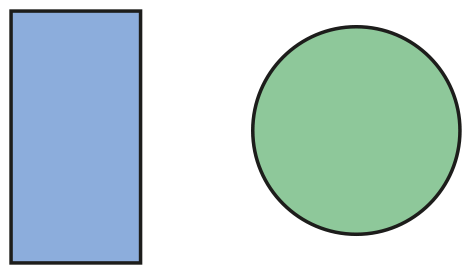
two-pan balance
A tool for measuring the mass of an object by balancing the object in one pan and a number of standard masses in the other pan.
